Teaching Consent
in KS3 and KS4. Part of our Classroom Conversations Series
How to talk to young people about consent, including a free downloadable lesson to use in your classroom
How to talk to young people about consent, including a free downloadable lesson to use in your classroom
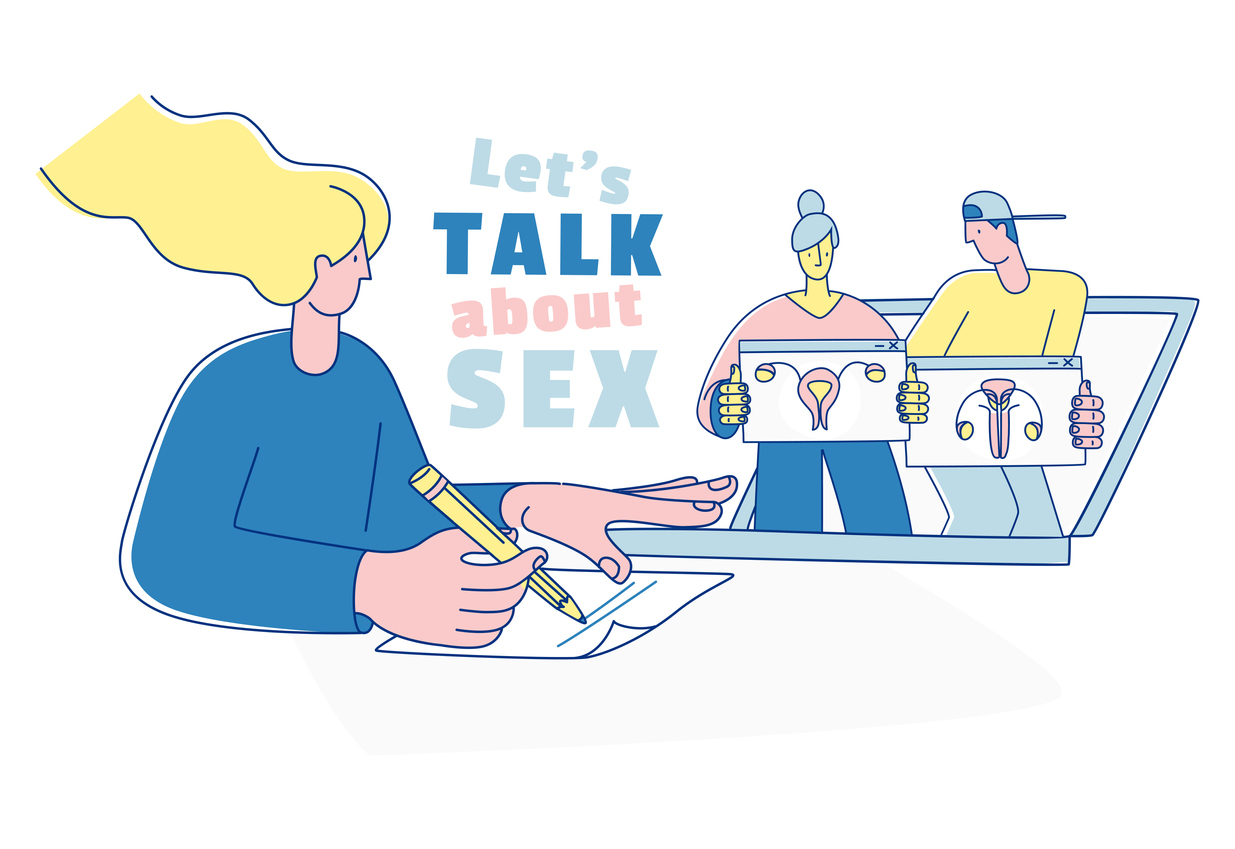
It feels like the word "consent" exploded into our lives quite suddenly. Something we hadn't explicity talked about before took centre stage in the conversation. Movements like #MeToo & #EveryonesInvited helped bring even more awareness to the topic. Today, discussions about consent and sexual harassment have become commonplace in the news, with examples ranging from allegations of sexual abuse by McDonald's workers to controversies like the Spanish football president's unwanted kiss and the recent calls to reconsider the age of consent following accusations against comedian Russell Brand.
These conversations have led us to conclude two things:
Teaching consent is a key part of Relationships and Sex Education (RSE) in schools. But, there's no denying that it can be tricky. For starters, consent is a complex and nuanced concept that can be difficult to explain to young people. How many films show someone stop and ask their partner "Do you consent to having sex with me?" before getting down to it? Not many. It's not always clear-cut. Other examples include a 15-year-old cannot give consent, even if they are saying that they do. Someone can consent after drinking alcohol, but not if they've drunk too much. And then there's relationship dynamics and a variety of other individual circumstances. Suddenly the topic becomes a nightmare, delivered live in front of 30 young people.
.
Yet we teachers know that this nightmare cannot happen, and that this lesson needs to be done right. It is our job to avoid confusion and to address misconceptions. To help young people to understand the importance of respecting other people's boundaries and decisions, to promote healthy and positive relationships & to teach young people how to communicate and negotiate consent in their own relationships.
.
We've put together a lesson to help teachers do just that. To discuss the nuances of consent with young people, providing real-life scenarios. These lessons aim to give young people the understanding & communication skills that they'll need for their own relationships.
In this lesson, students will learn about what consent means and why it is important. They will also have the opportunity to practice communication and negotiation skills to help them understand how to obtain and give consent in their own relationships.
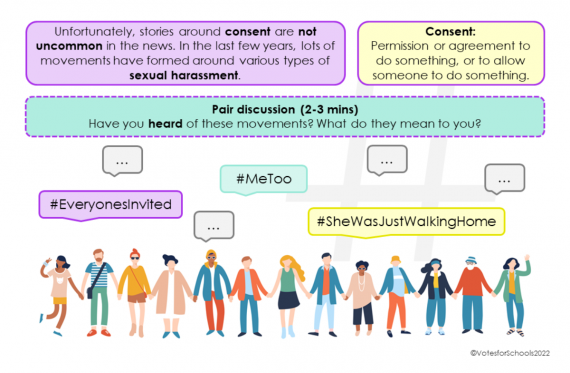
The lesson begins by asking students to produce a list of questions to establish ground rules about meeting up with friends. This activity introduces the concept of people consenting to a situation in a neutral manner. Then, students are introduced to the definition of consent and discuss why it is important, considering some recent headlines they may have heard of and what they are referring to.
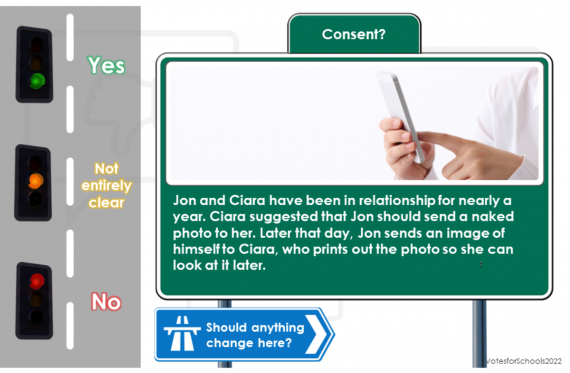
Next, students are provided with different scenarios where consent is given, is not clear or is not given. They will have the opportunity to discuss their thoughts & how they would respond in this situation. This leads on to informing students that unclear consent is not consent.
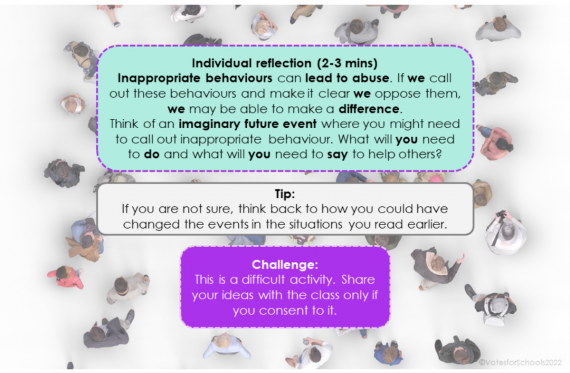
Towards the end of the lesson, students analyse situations and attitudes that can complicate communicating consent. The activity concludes with an individual reflection on how they could make a difference.
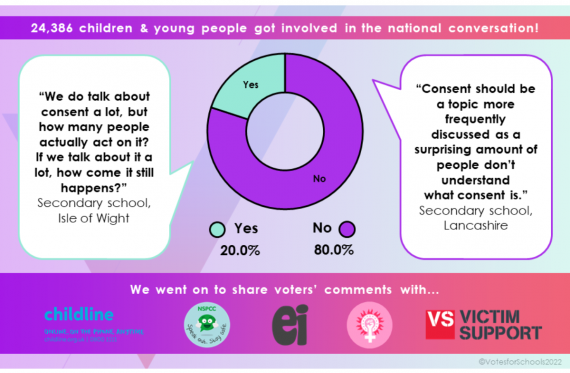
To end the lesson, students are asked for their answer to the question: Do we talk anough about consent? Once they have voted, they view the opinions of tens of thousands of other children & young people who have taken part in the lesson, seeing how their opinions compare.
.